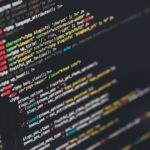Key Highlights
PHP, a robust programming language, has evolved significantly over the past 30 years, initially known as Personal Home Page Tools, and has now become a vital component of the contemporary PHP ecosystem.
It powers more than 75% of websites worldwide, including prominent platforms such as Facebook and WordPress, demonstrating its adaptability.
Significant milestones in the evolution of PHP include the introduction of server-side scripting in PHP 3, the development of the Zend Engine, the incorporation of Object-Oriented Programming in PHP 5, and the advanced features introduced in PHP 8.
A vibrant global community of PHP developers continues to drive innovation and collaborate on open-source initiatives.
Frameworks such as Laravel and Symfony, along with enhancements in security and API integrations, further enrich the PHP environment.
Pioneers like Rasmus Lerdorf and Andi Gutmans, along with organizations like the PHP Foundation, have solidified PHP’s reputation as a powerful programming language.
Introduction
As PHP marks its 30th anniversary, its evolution showcases unparalleled adaptability and ongoing innovation in the realm of programming.
Launched by Rasmus Lerdorf in 1995 and currently backed by the PHP Foundation, PHP has transformed from a basic personal script into a language that underpins a majority of the web today, highlighted by significant milestones celebrated in April.
From driving content-rich platforms to supporting robust applications, PHP development has redefined the potential of the web. This milestone encourages us to reflect on the origins, evolution, and lasting impact of this powerful language within the vibrant PHP ecosystem.
Registration for JetBrains PHPverse
The registration for JetBrains PHPverse signifies a crucial milestone in the development of PHP over the last 30 years. This platform offers an exceptional opportunity for developers to connect, collaborate, and improve their skills in PHP development. JetBrains, recognized for its powerful development tools, is committed to nurturing a lively community where both experienced professionals and newcomers can exchange insights, access resources, and participate in discussions regarding best practices in coding. By signing up for JetBrains PHPverse, participants can unlock exclusive content, attend workshops, and gain access to state-of-the-art tools that enhance their workflow and elevate their programming skills in this ever-evolving programming environment.
30 years of PHP: FrankenPHP is now part of the PHP organisation
FrankenPHP, an innovative project that merges PHP with advanced features and functionalities, has officially reached the status of par
Where did FrankenPHP Come From?
The PHP organization has marked a significant evolution in the PHP ecosystem, emerging as a fascinating milestone. This development arose from the need to combine the power of native PHP with modern web practices over the past 30 years.
Hang on, What is API Platform?
The API platform plays an essential role in the creation and integration of applications, particularly as PHP marks its 30 years of advancement.
An API, which stands for Application Programming Interface, acts as a conduit that facilitates seamless communication between different software systems.
It empowers developers to utilize existing functionalities and data from multiple applications without requiring an understanding of their internal mechanisms.
The Birth of PHP: From Personal Project to the Web’s Backbone
The inception of the PHP language narrates a tale of simplicity evolving into a revolution. In 1995, Rasmus Lerdorf developed Personal Home Page Tools, originally intended as a minor utility for overseeing his personal website. Unbeknownst to him, his experimentation would soon lay the groundwork for web interactivity, resulting in a wider acceptance that elevated PHP to a favored programming language. This humble origin in November set the stage for PHP’s transformation into a robust instrument for web development, which now influences practices worldwide.
A Brief History of PHP
- 1995: PHP/FI (Form Interpreter) was released.
- 1997: PHP 3 introduced more robust programming features.
- 2000: PHP 4 brought performance improvements with the Zend Engine.
- 2004: PHP 5 added object-oriented programming (OOP).
- 2015: PHP 7 brought massive speed boosts and modern syntax.
- 2020–2023: PHP 8 and 8.1 introduced JIT compilation, attributes, and named arguments.
- 2024–2025: PHP 8.3 & beyond continue to modernize the language with better performance and security.
Rasmus Lerdorf and the Origins of PHP
Rasmus Lerdorf’s contributions led to the development of PHP in the United States, which streamlined website management via a set of C-based scripts referred to as Personal Home Page Tools.
Originally designed to track web traffic, its user-friendly nature appealed to developers in search of customizable and effective tools.
The programming language quickly gained popularity owing to its open-source characteristics and enhanced capabilities, transforming from a personal scripting utility into a vital resource for web development, akin to JavaScript. By prioritizing accessibility, Lerdorf established PHP as a language that anyone could utilize.
PHP 3 and the Move to Server-Side Scripting
Released in December as a significant update, PHP 3 represented a crucial turning point by focusing on efficient server-side scripting. At its foundation was the Common Gateway Interface (CGI), which allowed PHP to handle interactive web forms and data submissions, thereby unlocking vast opportunities for developers.
What distinguished PHP 3 was its capability to integrate effortlessly with web servers and APIs, facilitating dynamic functionalities. This server-side scripting feature garnered unprecedented admiration from developers, laying the groundwork for sophisticated PHP application servers.
The implementation of PHP 3 reinforced its status in web programming. By addressing real-world issues, it enabled PHP developers to evolve from static websites to responsive, dynamic features—a transition that would significantly influence the modern web.
The Indian Developer Community and PHP’s Growth
A dynamic Indian developer community has played a crucial role in the advancement of PHP throughout the years. The extensive use of this robust language has cultivated an environment abundant in innovation and teamwork. As PHP developers refine their expertise through numerous educational institutions and bootcamps, new startups arise, utilizing the versatility of PHP for interactive web applications. This passionate adoption persists in elevating PHP to a significant status within India’s technology sector, guaranteeing its importance in a constantly changing digital environment.
WordPress, Drupal, and Joomla
Widely recognized as leading content management systems (CMS), these platforms demonstrate the versatility of the PHP language. WordPress, with its user-friendly interface, powers a significant portion of the internet as of January, embodying the accessibility PHP offers to developers and site owners alike. Drupal and Joomla, though less ubiquitous, cater to complex projects requiring extensive customization and scalability—allowing PHP developers to leverage its robust features. Together, they underscore PHP’s pivotal role in the evolution of the web, showcasing the language’s adaptability and strength across diverse applications.
Laravel, Symfony, and CodeIgniter
Among the powerful frameworks that have shaped PHP development, Laravel, Symfony, and CodeIgniter stand out for their distinct features and community support. Laravel, known for its elegant syntax and built-in tools, simplifies API creation, enhancing developer productivity. Symfony, recognized for its modularity and reusable components, provides a robust foundation for complex applications. CodeIgniter, with its lightweight structure, caters to speed and simplicity, making it ideal for smaller projects. Collectively, these frameworks illustrate the versatility and innovation within the PHP ecosystem.
Among the powerful frameworks that have shaped PHP development, Laravel, Symfony, and CodeIgniter stand out for their distinct features and community support. Laravel, known for its elegant syntax and built-in tools, simplifies API creation, enhancing developer productivity. Symfony, recognized for its modularity and reusable components, provides a robust foundation for complex applications. CodeIgniter, with its lightweight structure, caters to speed and simplicity, making it ideal for smaller projects. Collectively, these frameworks illustrate the versatility and innovation within the PHP ecosystem.















